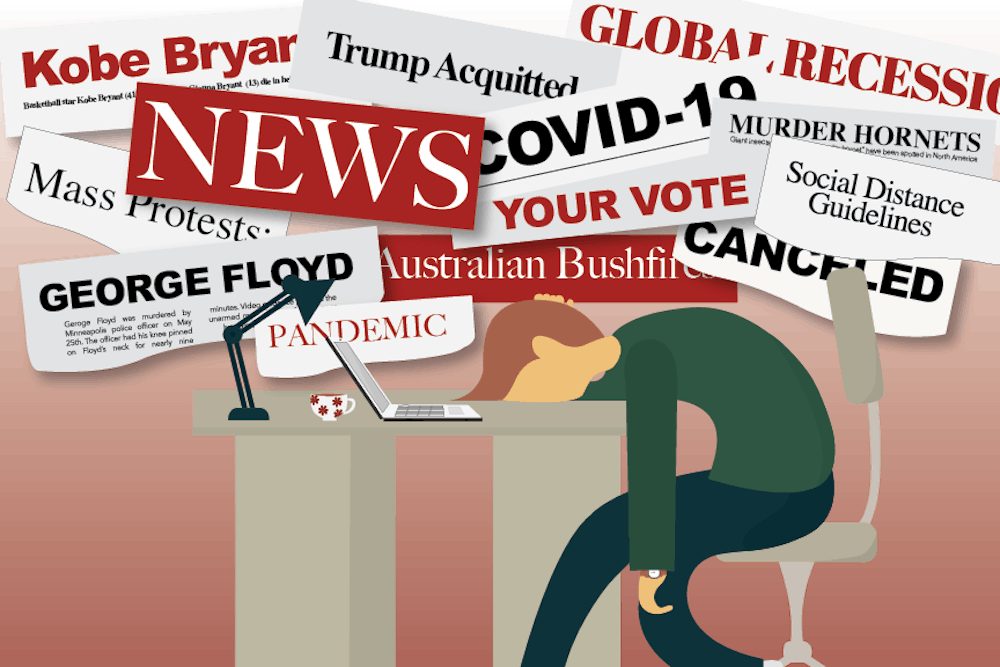In a time when everyone experiences the social pressure to make New Year’s resolutions and continue the daily grind in quarantine, we need a reminder to be kind to ourselves.
Around 50% of American adults make New Year’s resolutions, but less than 10% keep them for longer than a few months. This creates unnecessary stress and anxiety in a time when there is already an abundance of such feelings.
Mental Health America (MHA) has conducted voluntary mental health screenings for six years straight. In May and June of 2020, the number of screenings for depression and anxiety increased by 406% and 457%, respectively, when compared to January of the same year — loneliness and isolation were the greatest causes cited by participants, but other significant triggers included grief/loss, financial concerns and current events.
There are constant streams of content from Instagram influencers to use their dietary supplements (or those from companies that pay them) to shed some weight for your New Year’s resolution or, worse, to get rid of weight gained during quarantine. Cable and internet ads for traditional diet plans do the same. Tweets, TikToks and posts of all kinds encourage creative and career productivity while you have time during a lockdown.
This is garbage. Give yourself (and others) some grace.
I am not being dramatic. I promise, people much more educated than me have said this: We are all going through a collective trauma.
What is a collective trauma? We often experience terrible, unwelcome events as individuals or families, but a collective trauma is something that happens to a large group, such as a religious group, ethnicity or even a whole country. As Molly Castelloe, an expert in group psychology, tells Rolling Stone magazine, collective trauma means, “a shared experience of helplessness, disorientation, and loss among a group of people.”
This trauma comes about from events such as wars, government breakdowns or severe health crises. When you believe your country is the greatest on Earth and see it fail in comparison to those “worse” or poorer than it, you might begin to question your government as a whole and your own national identity.
Does this sound like a wonderful time to go on a weight loss journey, write a novel, start learning a new language or anything of the sort? No.
In fact, extending compassion to yourself can have health benefits. This mindset allows the brain and heart rate to relax, thus making the body feel like it’s in a safe and relaxed environment — that’s what's important to healing.
Your body and mind do not expect you to be the epitome of health when you’re more worried about catching a virus that could kill your family and cause you prolonged health issues.
Your body and mind do not expect you to suddenly excel in a brand new skill or trade as you force yourself to become accustomed to hours of online classes a day, having to study and talk with professors and classmates in new ways and have much less face-to-face contact with friends and family.
In fact, your body and mind certainly don’t expect you to act as if everything is fine and as if you have no problem completing your regular activities or keeping your regular schedule.
So, why do you expect all of this of yourself?
Yes, it’s important to be kind when people make trivial mistakes, feel inadequate or otherwise fail. However, it’s also important to be kind to yourself.

